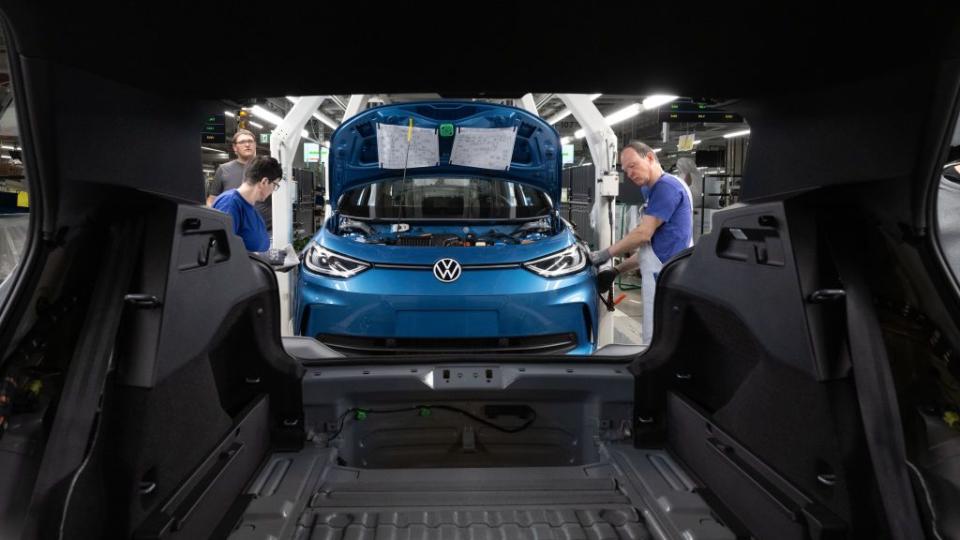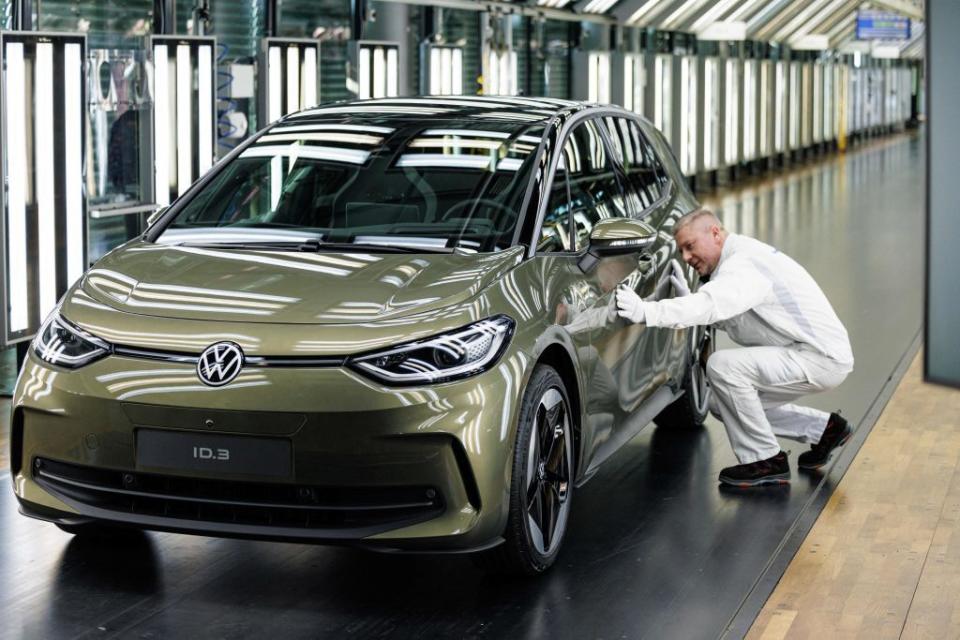Should VW Offer Its €20,000 EVs in the US and Canada?

VW plans to launch four entry-level EV models in Europe starting in 2027, from Cupra, Škoda, and VW brands, including two compacts and two crossovers.
The entry-level EVs are slated to have a starting price around €20,000, or $21,800 at the current exchange rate.
VW is expected to face significant pressure from Chinese brands in multiple EV segments in Europe in the coming years, as Chinese automakers continue to introduce their vehicles to the continent.
While Chinese automakers already are offering much more affordable EVs and the $25,000 Tesla model may have fallen victim to inflation—a development Tesla CEO Elon Musk has denied—Volkswagen has greenlit an even more ambitious electric car project than the one once teased by Tesla.
A few days ago the Board of Management of the Volkswagen Group said it will launch not one but four EVs with a target price of around €20,000, or $21,800 at the current exchange rate.
"Two new compact cars, one from VW and one from Cupra, as well as two small crossovers—one each from Škoda and one from VW—are planned here," the VW Group said in a statement.
Described as compact and particularly inexpensive EVs, the Electric Urban Car Family models are slated to arrive in 2027, at least in Europe. And all four will be built in Spain.
As such, they would undercut the already compact and relatively inexpensive VW ID.3 that has been on sale in Europe for a number of years.
"Generations of people associate the strong brands of the Volkswagen Group with their first car—and with affordable mobility," said Oliver Blume, CEO of Volkswagen Group. "As a group with strong brands, we continue to assume this social responsibility to this day."
While a gradual drop in EV prices had been foreseen for some time, it's not lost on industry observers that Volkswagen will also go up against a number of affordable models from Chinese automakers by 2027.
As such, Wolfsburg will fight for a slice of the market that Chinese automakers appear poised to capture in Europe and elsewhere in the coming years, in price segments that had not seen EV entries for a variety of reasons.
However, the VW Group did not indicate whether any of the four would be offered in the US or Canada, despite announcing plans for the Cupra brand to enter the US later in the decade. Likewise, VW did not bring the ID.3 stateside after its launch five years ago, opting for larger offerings like the ID.4 as well as the ID. Buzz that will arrive later this year.

Days ago VW also postponed plans to bring the ID.7 sedan stateside—at least for now. The ID.7, aimed pretty squarely at the Tesla Model 3, has launched in Europe along with its station wagon twin.
As such, we're not expecting VW to offer any of these four models stateside, at least not at first, continuing the trend of small and affordable EVs largely passing us by.
VW's hesitation is perhaps understandable, as small electric hatches have faced an uphill battle in the US for the past decade and a half, with vehicle shoppers gravitating toward midsize sedans and crossovers even in the recent "modern era" of EVs. The VW brand itself has noticeably stretched upmarket over the past two decades when it comes to pricing.
The rising cost of materials—a more recent trend—has also eroded the business case for smaller and more affordable cars for many automakers, complicating VW's mission for 2027.
"Despite the attractive price, our vehicles will set standards in the entry-level segment in terms of technology, design, quality, and customer experience," said Thomas Schäfer, CEO of the Volkswagen brand. "This task has become more demanding due to rising energy, material, and raw material costs."
By 2027 the €20,000 target may well be even more challenging for VW to achieve, thanks to inflation and the ever-growing cast of competitors. But this won't quite address the dearth of truly affordable electric cars on this side of the Atlantic.
Should VW bring its entry-level EV here, or will the US market be more receptive to larger and more luxurious crossovers and SUVs in the second half of the decade? Let us know what you think in the comments below.

 Yahoo Autos
Yahoo Autos 